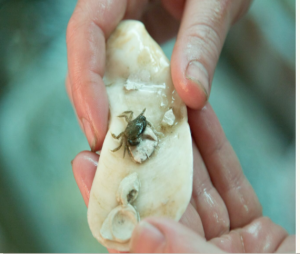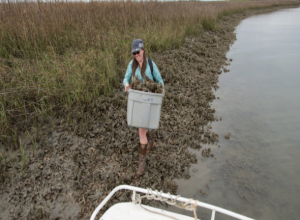What would happen if plants couldn’t protect themselves? Well, for one, they would be prone to many different infections and viruses. Ultimately, plants would die without the ability to protect themselves. To really put things into perspective, humans would not have many of the food sources they have without plants.
Yuli Ding, a 5th year PhD student at the University of British Columbia, and her colleagues made a coincidental, break-through discovery in October 2016. Focusing on the ability of plants to resist diseases that they’ve previously encountered, called Systemic Acquired Resistance (SAR), Ding set out to determine if a specific molecule is required for this type of protection. SAR is described with greater depth in the following podcast with the researcher herself. The molecule in question was Pipecolic Acid (Pip). According to the findings of the scientists, “Pipecolic acid could be a relatively important mobile signal is the systemic acquired resistance.” In simpler terms, Pip aids in SAR by activating the process.
We had the opportunity to interview Yuli Ding about her research to help clarify some of these complex concepts. Listen to her explanations of the research in the following podcast.
What happens to plants that cannot complete SAR? Mutated plants, with a non-functional SARD4 gene, are SAR-deficient and thus unable to effectively defend against diseases. Instead of making Pip to activate SAR, a Pip pre-cursor molecule gathers in the plants – demonstrating SARD4’s importance in synthesizing Pip. Since Pip is not being created, the plants don’t exhibit SAR and are less able to defend themselves when infected by pathogens.
In this video, Yuli Ding describes how they identified SAR-deficient Arabidopsis plants, and demonstrates one of the main lab techniques, Polymerase Chain Reaction, that her team used to help identify Pip as a signal molecule.
Arabidopsis Timelapse
Music: Horizon, by Letmeknowyouanatole
Why should we care? SAR is a key process by which plants protect themselves, so SAR is an essential mechanism in ensuring the maintenance of agriculture and healthy crop yields.
Science is advancing at a rapid rate and the use of Genetically Modified Organisms (GMOs) has been increasing. A GMO is the result of a gene transfer between organisms. For example, the gene of one organism is inserted into another organism in order to improve that organism. The results of this study could be a stepping stone to creating GMOs that have better SAR, and are better able to defend against disease. Specifically, the genes responsible for synthesizing Pip could be added to immuno-compromised organisms. Genetic modification could also be used to make plants have stronger SAR or better immune systems. Although the use of GMOs could be beneficial, GMOs pose several threats to the environment and other organisms.
What can we do with this research right now? The findings of this study could help improve the yield of crops and the number of successful crops. Farmers and agriculturalists could now focus on improving the environmental conditions of their plants to ensure that all requirements for a plant to be healthy are met. A healthy plant would increase the chances of proper SAR. All in all, a healthy plant is a happy plant!
By Navpreet Ganda, Pavneet Virk, and Zhongkai He.






